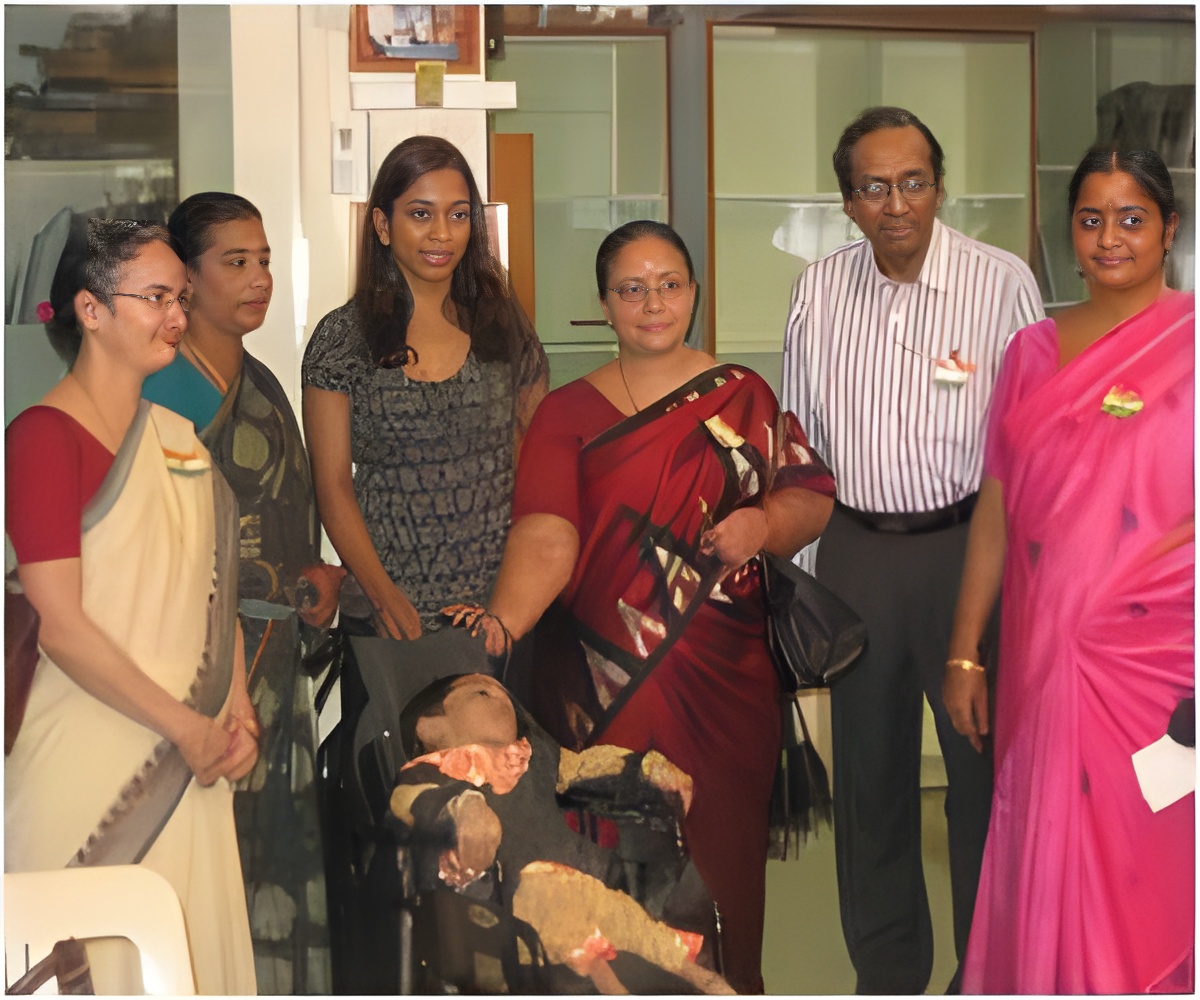Multi speciality care was extended by doctors from India and the UK to children with rare genetic disorders such as MPS in an event organized by Fetal Care Research Foundation in Chennai, South India

Support Group Help: The Fetal Care Research Foundation (FCRF), Chennai, aids patients with pre-natal diagnosis or CVS (Chorionic Villi Sampling) to help parents detect defects during pregnancy so subsequent children are unaffected. As for children born with genetic disorder, the MRI scans are done at subsidised rates, followed by supplying of diapers, manual wheel chair, powered wheel chair, nutrient supplies free of cost to the economically challenged. The event also serves as a morale boost for parents to meet and share to help cope with children with genetic disorder. According to Mrs. Jayashree Balachander, the Co-ordinator for Fetal Care Research Foundation the enrolment has increased over the years since the FCRF is the only place in India where counselling and direction for parents of children with genetic disorder is organized in detail.
Expert Opinion: Dr. Uma Ramaswami and Dr. Ashok Vellodi specialists from UK in unison agree that they are impressed with the progress the foundation has made since its inception. Dr. Vellodi notes that since parents get to meet various specialists under the same roof it is an ideal way to manage children. In addition, the satisfied patients improve communication and awareness once they recognise the issue. This helps parents cope with the challenge. As for Dr. Ramaswami, she observed that catering to many patients in the same day as opposed to one patient visiting many doctors, improves the doctor’s skill in treating genetic disorders. She also suggested that in order to help patients from economically challenged backgrounds the government should arrange for a centralised medical funding system. She also added that in UK it was the Support Groups that aided the government to establish a medical systemfor the benefit of patients.
Parent’s Concern: Mr. Karunakaran who had been instrumental in the inception of the Support Group for MPS, is the father of an overachieving daughter with MPS. After being turned down by a doctor who declared that such children are usually ostracized, he spent every Wednesday at the Institute of Child Health (ICH) at Egmore, Chennai. He managed to bring parents of children with genetic disorder to the institute after Dr. Suresh, the founder of the Support Group of MPS, was willing to support his cause. Mr. Karunakaran, an employee of Food Corporation of India (FCI), even volunteered his daughter for a trial on the then available treatment with the Biomarin Pharmaceutical company. Over the years he has come across MPS patients who usually died of multiple organ failure and heart attacks being the most cited cause. Some of the benefits of support groups in his opinion include centralised benefits, multi-speciality doctors available throughout the year and tie up with hospitals so patients with MPS IDs get discounts on diagnosis and treatments. Mr. Karunakaran sincerely hopes that Insurance companies do take people with special needs into consideration to help meet with finances, since the treatment is extremely expensive.
In Comparison: Mrs. Tanya Collin-Histad, Chief Executive of UK Gaucher Foundation and also a member of the European Group remarks on the difference between the support groups in India and UK. Centres are equipped with experts encouraging patients to come to them, secondly, doctors do the research after a disorder is detected, and thirdly parents contact the Centre to share experiences and in turn are referred to experts. The National Health System (NHS) in England arranges treatment within days of diagnosis depending on severity. Mrs. Collin-Histad, herself a mother of a daughter with Gaucher admits she was devastated when reported of the unheard Gaucher disorder. Her daughter was diagnosed when she was 17 months old and was also informed that she would never walk and will die very soon. But her daughter is now 16 years old and is a school goer. After a pre-natal diagnosis, Mrs. Collin-Histad went on to have her second child. Since this is her first visit to India, she is amazed at the commitment of families even when they have to help themselves.
External Support: Mrs. Tanya Collin-Histad, as a Chief Executive and an empathiser is willing to offer support by contacting drug companies. She also keeps in touch with parents who need financial support and sends newsletters through e-mails to link families. She cited the example of a Pakistani parent who was referred to an expert and treatment was facilitated with the help of a translator. Mr. Malcolm Johnson, Consultant of Patient Advocacy, states that the key message is the need for more products and treatments to be made available. He estimates around 30, 000 undiagnosed patients suffering from genetic disorders in India. Some of his suggestions to improve include working closely with authorities so more patients will live an improved life. Next the pharmaceutical industry has to understand the need in India and provide a solution. Incentives should encourage investment, create employment and manufacture medication for multiple disorders instead of focusing on only one.
Mr. Johnson was particularly impressed with Sleep MRI Scan where the patient slept unaided through the scanning process. The patient had a snoring disorder, it’s something he has not seen before and we’ve not heard before. He reinforces the need to do more for patients, maintain top line discussions, be consistent with the message and employ a strategy with economic value basis that creates worth in the community. His motivation lies in the gratitude of people who are cured because of the medication made available. He also hopes that sustainable projects are implemented so the efforts of doctors will definitely bear fruits.
The Fetal Care Research Foundation was set up on 8th August 2003, with the encouragement of Dr. Suresh and Dr. Indrani Suresh,supported by Dr. Sujatha Jagadeesh. With every passing year the number of entries is increasing which is a positive sign. On this occasion wheelchair was freely gifted to Dharini, a 7th standard girl. However the free services and basic utilities are currently solely borne by the Foundation and Mediscan extends its support throughout the year. It is an uphill climb but the Foundation is steady and progressing and for the services provided out of goodwill, the foundation well deserves the much needed government aid and financial support from well-wishers. Indian Republic Day was best solemnized by The Fetal Care Research Foundation on 26th January 2011 in Chennai when many distressed parents with their suffering children gained strength from knowing that somebody understands their situation and cares for their children affected by severe genetic disorders such as MPS.
Source-Medindia















